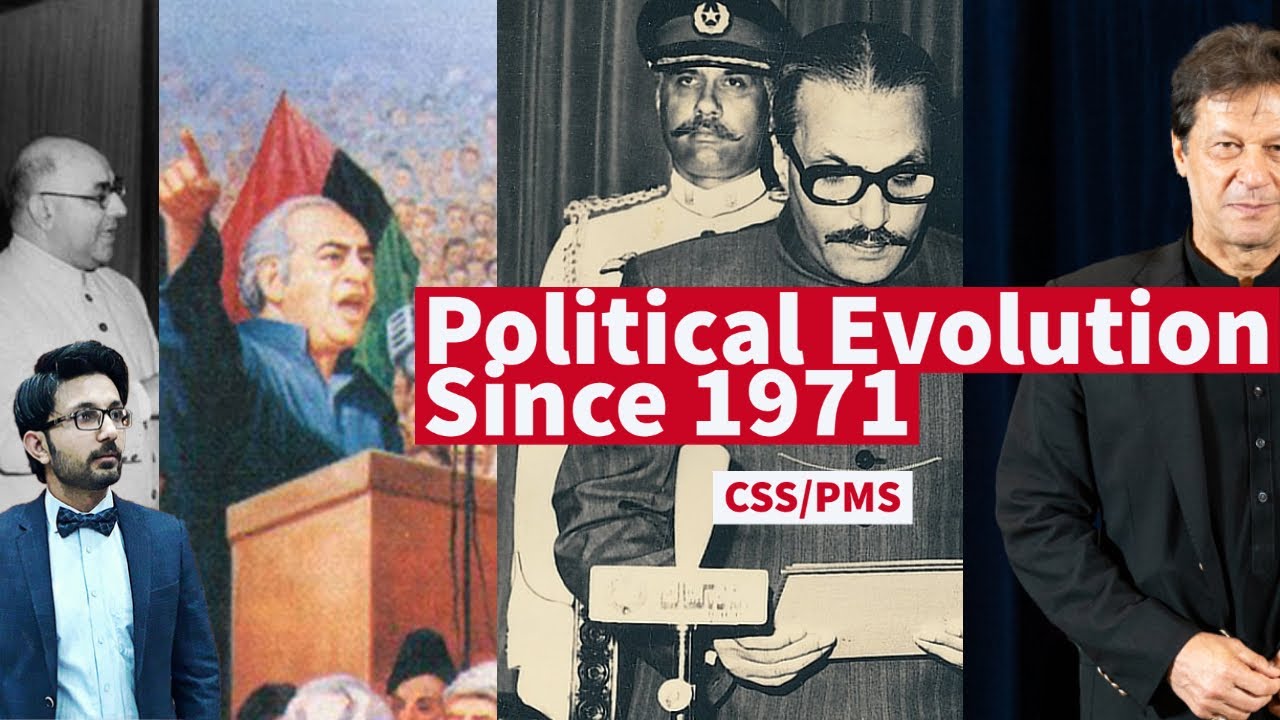K. Political evolution since 1971.

The political evolution of Pakistan since 1971 has been marked by a series of significant events and developments that have shaped the country’s political landscape.
In 1971, East Pakistan, the eastern part of the country, seceded and became the independent state of Bangladesh. This event had a profound impact on Pakistan’s politics and led to a significant shift in power dynamics within the country.
Following the secession of East Pakistan, Zulfikar Ali Bhutto emerged as a key political figure in Pakistan. Bhutto founded the Pakistan Peoples Party (PPP) and became the country’s first civilian president in 1971. Bhutto’s tenure was marked by a series of reforms, including the nationalization of several key industries and the adoption of a new constitution in 1973.
In 1977, General Zia-ul-Haq seized power in a military coup, ousting Bhutto from power. Zia-ul-Haq’s regime was marked by a period of political repression and the imposition of Islamic law. Zia-ul-Haq also oversaw the development of Pakistan’s nuclear program, which remains a key element of the country’s national security strategy.
Following the death of Zia-ul-Haq in 1988, Pakistan returned to civilian rule. However, the country’s politics remained turbulent, with a series of short-lived civilian governments and military interventions.
In 1999, General Pervez Musharraf seized power in a military coup, ousting the democratically elected government of Prime Minister Nawaz Sharif. Musharraf’s regime was marked by a series of economic and social reforms, including the liberalization of the economy and the empowerment of women.
In 2008, following a period of political turmoil, Pakistan returned to civilian rule under the leadership of the Pakistan Peoples Party. However, the government was beset by a series of challenges, including a deteriorating security situation and a struggling economy.
Since then, Pakistan has undergone a series of political and social changes, including the rise of the Pakistan Tehreek-e-Insaf party under the leadership of Imran Khan, the country’s current Prime Minister. Under Khan’s leadership, Pakistan has focused on a range of issues, including economic development, security, and social reform.